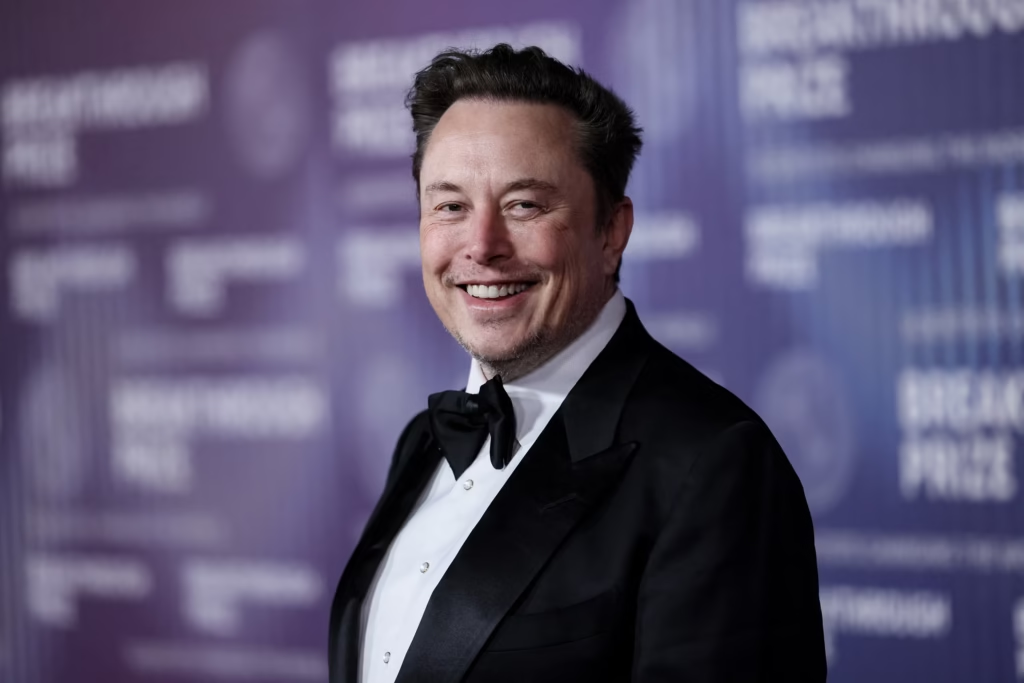seniorspectrumnewspaper – Elon Musk may soon venture into a new area of business: chip manufacturing. During Tesla’s annual shareholders meeting on Thursday. Musk outlined his plan to tackle one of the biggest challenges his companies face: chip availability. As Tesla pushes forward with ambitious projects like driverless vehicles and humanoid robots. The need for advanced chips has become critical. Musk believes that chip production capacity is currently too limited to meet the demands of his companies.
Read More : Apple Faces Pressure to Ban LGBTQ+ Apps in China
Musk’s businesses already rely heavily on external semiconductor manufacturers, including TSMC and Samsung, to supply chips. However, he stated that these companies are still not producing enough to keep pace with the growth of Tesla and his other ventures. “As far as I can see, the only option is to go build some very big chip fab,” Musk said. Explaining that increasing chip production is the only way to scale up his technologies effectively. He emphasized that solving challenges around memory and packaging is also essential for the success of such an endeavor.
To address this need, Musk proposed the creation of the “Tesla Terra Fab,” a massive chip manufacturing facility. The new factory would aim to produce an ambitious amount of chips—at least 100,000 wafer starts per month. For context, that’s five times the output of TSMC’s first U.S.-based fab in Arizona. Musk’s goal is to build a facility capable of producing chips at a rate that Tesla and other companies within his ecosystem can rely on.
This chip manufacturing push aligns with Musk’s broader strategy to enhance the performance and efficiency of Tesla’s electric vehicles and robots. One of the key products that would come from the Terra Fab is the AI5 processor. According to Musk, this chip would offer similar performance to Nvidia’s Blackwell GPU but consume about one-third of the power. This is crucial for Tesla’s next-generation vehicles, which require highly efficient chips for their autonomous capabilities.
The Challenges and Future of Tesla Terra Fab
Building the Tesla Terra Fab will be no small feat. Musk acknowledged that constructing such a large-scale chip factory would take years to complete. It would require not only a substantial financial investment—estimated at over $100 billion—but also access to scarce engineering talent in the chip industry. Musk is no stranger to ambitious projects, but this one would be on a different scale entirely.
Despite these hurdles, Musk is undeterred. He foresees the potential for multiple fabs in the future, possibly up to 10 in a large manufacturing complex. If Musk’s vision comes to fruition, the entire complex could produce up to a million wafer starts per month. This would position Tesla as a major player in the semiconductor industry and provide the company with greater control over its chip supply chain.
In the meantime, Musk has been in discussions with Intel, a leader in chip manufacturing, about using its facilities to meet Tesla’s short-term needs. This partnership could help bridge the gap until the Terra Fab is operational. Musk’s plan for self-sufficiency in chip production reflects the growing importance of semiconductor technology in the development of electric vehicles, AI, and robotics.
Read More : Minisforum X1 Lite: Budget AMD Mini PC with eGPU Compatibility
While the timeline for the Tesla Terra Fab remains unclear. Musk’s broader goal is to ensure that his companies are not limited by supply chain issues in the future. The massive investment required for this project underscores Musk’s confidence in the long-term growth of his businesses. If successful, the Tesla Terra Fab could become a cornerstone of the company’s ability to innovate and lead in the industries of tomorrow.


